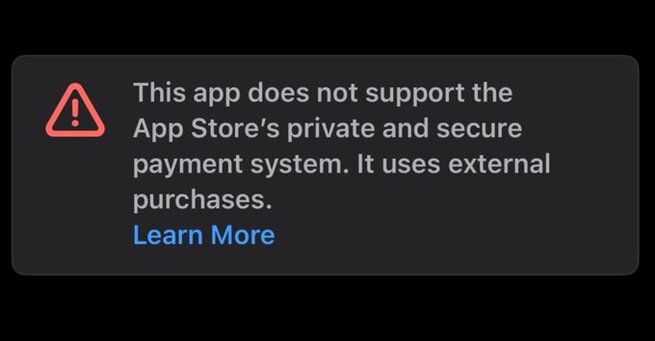
Apple is now placing clear warnings on EU apps that use alternative payment systems instead of Apple’s own App Store payments, raising concerns and questions among iOS users and developers alike. If you’re searching for information about Apple’s new warning messages in the EU App Store or want to understand how Apple’s stance on third-party payment options might affect your privacy and app experience, this article breaks down what you need to know. Apple claims these warnings are meant to protect users by highlighting potential risks when using external payment methods, but critics argue the move is more about controlling payment revenue and limiting user choice.
The controversy centers on how Apple labels apps that bypass the App Store’s built-in payment system. For example, Instacar—a popular Hungarian app that doesn’t use Apple’s payment platform—is now flagged with a red exclamation mark and a cautionary message informing users that it doesn’t use Apple’s “private and secure payment system.” This warning also reminds users that external purchases won’t benefit from features like purchase history tracking, Family Sharing, or unified subscription management. While Instacar hasn’t violated any App Store policies, the warning clearly aims to make users hesitate before downloading.
Apple’s message directs users to consider the privacy implications of providing payment information directly to third-party developers or payment providers, warning that users must trust these parties to securely handle their data. This aligns with Apple’s long-standing emphasis on privacy and security but also fuels the debate on whether these warnings constitute “scare tactics” designed to discourage use of alternative payment methods.
This issue gains added significance amid growing regulatory scrutiny in the European Union. The European Commission recently criticized Apple for making it overly complicated for users to install alternative app marketplaces on iOS, highlighting how Apple’s approach could stifle competition and consumer choice. Moreover, a recent court ruling in the United States (Epic vs Apple) restricted Apple from imposing overly restrictive rules on linking to alternative payment options, but these protections do not extend to Europe, leaving Apple free to enforce such warnings.
Ultimately, Apple’s EU app warnings raise important questions about user freedom, app ecosystem control, and payment security on iOS devices. Whether you’re an iOS user concerned about app safety or a developer navigating App Store policies, understanding this evolving landscape helps you make informed choices. As Apple continues to tighten its grip on payments, European users should stay alert to how these changes might affect app selection, privacy, and overall iPhone experience.
𝗦𝗲𝗺𝗮𝘀𝗼𝗰𝗶𝗮𝗹 𝗶𝘀 𝘄𝗵𝗲𝗿𝗲 𝗿𝗲𝗮𝗹 𝗽𝗲𝗼𝗽𝗹𝗲 𝗰𝗼𝗻𝗻𝗲𝗰𝘁, 𝗴𝗿𝗼𝘄, 𝗮𝗻𝗱 𝗯𝗲𝗹𝗼𝗻𝗴. We’re more than just a social platform — from jobs and blogs to events and daily chats, we bring people and ideas together in one simple, meaningful space.